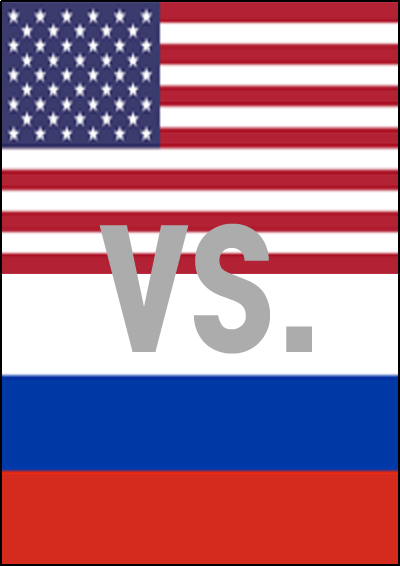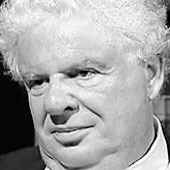Obama’s Whitewashed History
Putin is no saint, but he simply revived Russia’s own version of the U.S. Monroe Doctrine.
April 3, 2014

Obama’s whitewashed history
U.S. President Barack Obama’s speech in Brussels in March 2014 was remarkable in two regards: First in his determination to take Russia to task after its move into Crimea.
And second, Obama’s Brussels speech was remarkably full of double standards. The rules that he applied to Russia — and one can certainly make that case — are evidently applied not at all when it comes to assessing the United States’s own aggressive foreign policy moves.
In Brussels, Obama spoke boldly and confidently as the leader of the West — as if he could extract himself from his U.S. role. He spoke as if he were some über-secretary-general of NATO.
But for a sitting U.S. President to “forget” America’s own long record over the past 30 years of acting unilaterally with military force in its own interests is too clever by half.
There was no explanation of why the constraints of international law and the U.N. Security Council evidently don’t apply to the United States — as recently as President Obama’s own aborted plans for action in Syria last September.
To emphasize the vitality of international law (in Russia’s case, but not for the United States) is not just convenient. It is fundamentally dishonest.
The cases of unilateral U.S. foreign policy go well beyond the canceled Syria operation, nor have they been limited to the United State’s “back yard.”
It is more than the invasions of (tiny) Grenada in 1983 and of (almost equally tiny) Panama in 1989 that were carried out without any regard for international law. The case of the unprovoked Iraq invasion of 2003 concerns a larger country outside the Western hemisphere.
U.S. claims that Saddam Hussein was successfully developing weapons of mass destruction were used to try to push through a UN resolution in 2003 to justify the invasion of Iraq. When that failed, the U.S. invaded anyway. The supporting claims were later shown to have been based on false intelligence.
If anything, they eerily resemble Soviet-style fabrications of creating a pseudo-legitimate argument for an invasion of another country.
Russia’s relative restraint
If one is willing (a big “if”) to call a spade a spade, one must recognize this irony: The Russian takeover of Crimea and its looming moves against eastern Ukraine are not projecting Russian power halfway round the world.
That is what the Soviet Union did in Angola, Mozambique and Afghanistan in the 1970s. Not so in today’s Russia.
Instead, the current Russian leadership, like the Soviet leadership of 1956 and 1968, has enough sense to realize that it can only get away with interventions in its own “sphere of influence.” So far, the Russians have never really stepped out their near-abroad.
No doubt about it, President Putin’s new moves are truly dangerous in terms of world peace. But one must at least recognize two points, unpalatable though they may be: First, his moves are consistent with Russia’s historical fears and legitimate security concerns.
These have been recognized as legitimate by the other great powers ever since the days of the Congress of Vienna in 1815.
In other words, Russia’s actions are part of the classic canon of big-power diplomacy. Its course stretches through the Teheran, Yalta and Potsdam summits during and after World War II. And they extend all the way to the first President Bush and his solemn commitment to President Gorbachev at the end of the Cold War.
The second point to recognize is this: The U.S.’s ill-fated move into Iraq, certainly no less than Russia’s move into Ukraine, has also been extremely dangerous in terms of world peace. How so? It was the key step to destabilize and inflame the Middle East — a region that is seen as the world’s most dangerous theater of conflict.
Russia’s Monroe Doctrine
Ultimately, what Vladimir Putin has done is that he has revived Russia’s own version of the Monroe Doctrine. We in the West may not like that. And we may not like him personally.
But we shouldn’t glibly make mincemeat out of history. Considering that Russia lost at least 26 million troops and civilians from hostile invasion from the west at the hands of Nazi Germany and its allies in World War II, Russian fears are certainly comprehensible. Russia wants to maintain its own zone of security. That should be respected by the United States.
Putin’s moves today cannot be properly understood without realizing Bill Clinton’s role in Russian feelings of encirclement.
It was the United States’s aggressive NATO expansion, undertaken against earlier commitments, that has created Russia’s sense of a need for a determined pushback against the United States’ constantly stepping into Russian’s sphere of influence.
Let’s be honest
Like it or not, Russia certainly has more justification for intervention in Crimea — which was Russian in 1783 (before the time when the United States Constitution was created) — and in Ukraine than the United States has for “its” cases.
U.S. military interventions in Vietnam and Iraq pinned down the threat of nations halfway around the world. These countries had no historical significance for, or connection to, America whatsoever.
In the eyes of President Putin, and most of the Russian people, the United States – and, by extension, the West — has spurned them and treated them with contempt over the past 20 years.
No wonder then that it is now the West’s turn, as Russia finally pushes back, to come to terms with this new Monroe Doctrine of the East.
Takeaways
Obama's Brussels speech was an exercise in whitewashing history. All US sins were conveniently forgotten.
It is the West's turn to come to terms with an eastern Monroe Doctrine, as Russia pushes back at last.
The US approach – of blaming Russia for what it does oneself – is an amazing double standard. Iraq anyone?
Read previous

Russia: Pushing Back at the United States
April 3, 2014
